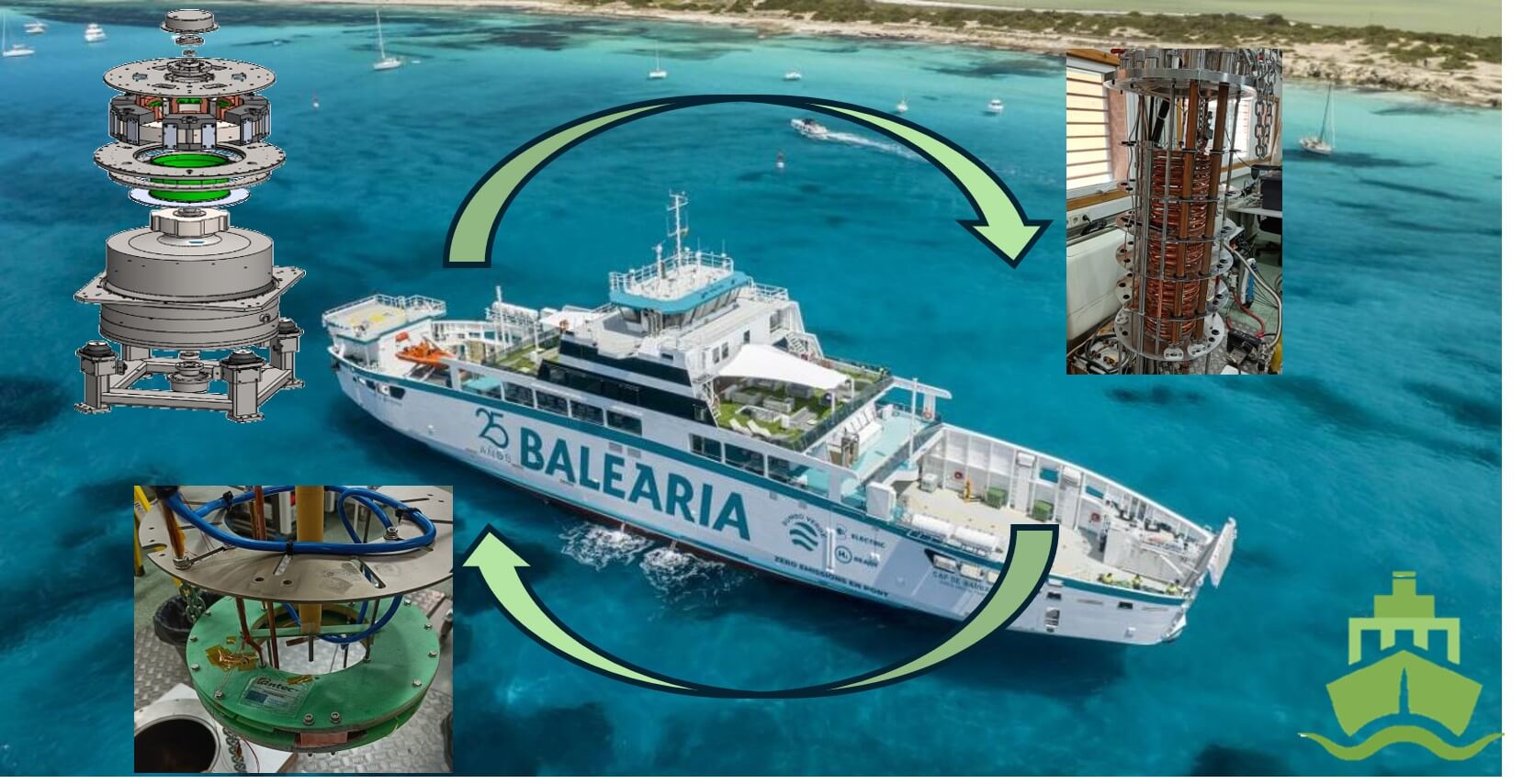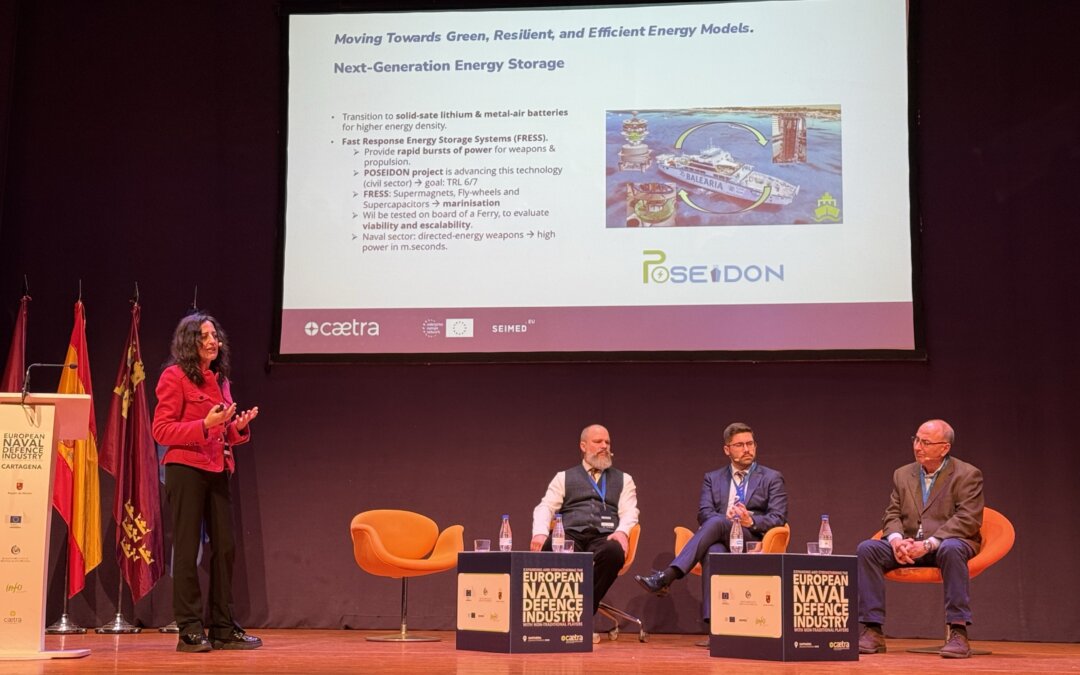A key forum for innovation and collaborations
From 6 to 7 March 2025, the Spanish city of Cartagena hosted the European Naval Defence Industry Congress, under the theme “Expanding and Strengthening the European Naval Defence Industry with Non-Traditional Actors.” The event brought together more than 300 professionals from across Europe, fostering collaboration and opening new opportunities for innovation in this strategic sector.
Organised under the umbrella of the European Network of Defence-related Regions (ENDR) — an initiative managed by the Directorate-General for Defence Industry and Space (DG DEFIS) of the European Commission — the congress served as a platform for SMEs and tech startups to become more involved in the naval defence value chain. The Region of Murcia, through its regional development agency Instituto de Fomento, actively contributed to the organisation and success of the event.
Spotlight on energy for future naval platforms
The opening day featured a round table chaired by Noelia Ortega, Director of CTN (Centro Tecnológico Naval y del Mar). Titled “Energy Generation, Storage & Distribution for Future Naval Platforms”, the session centred on the challenges and strategic importance of efficient energy systems for the naval defence industry.
In her role as moderator, Ortega emphasised how energy generation, storage, and distribution have become critical elements in ensuring operational efficiency and sustainability for future naval fleets. The discussion echoed the European Defence Agency’s position that sustainable and high-performing energy solutions are no longer aspirational — they are operational necessities.

POSEIDON: Bridging civil and defence innovation
In this context, the POSEIDON project was presented as a flagship example of how civil-sector innovation can support defence needs. The project focuses on developing Next-Generation Energy Storage technologies, including:
- Solid-state lithium and metal-air batteries, offering increased energy density.
- Fast Response Energy Storage Systems (FRESS), designed to deliver powerful bursts of energy for propulsion and high-demand systems.
By integrating technologies such as supermagnets, flywheels, and supercapacitors, POSEIDON is advancing solutions that are adaptable to maritime environments (marinisation) and plans to test these systems on board a ferry. This real-world trial aims to assess both technical viability and scalability for future deployment.
Unlocking dual-use potential
Although developed within the civil sector, POSEIDON’s innovations are highly relevant to defence applications, particularly in supporting the emergence of directed-energy weapons — systems that require the delivery of high power within milliseconds. The project targets Technology Readiness Level (TRL) 6/7, positioning itself as a bridge between research and real-world deployment, and a key contributor to dual-use technology advancement in Europe.
